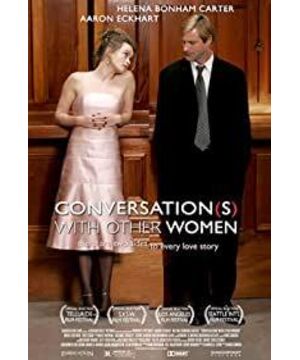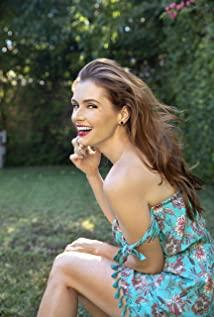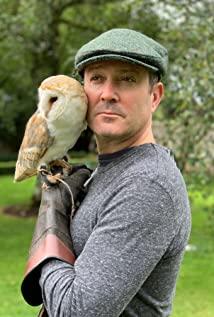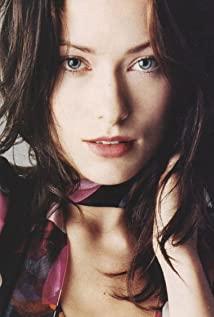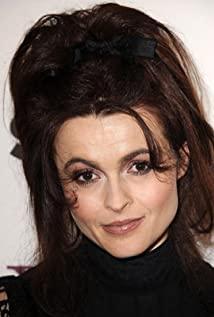Since I'm not very good at talking skills, I'm just going to tell the story: man and woman meet at a wedding (as bridesmaids and bride's relatives, respectively, old-fashioned sneer!), strike up as complete strangers, strike up a conversation, Flirting, talking, dancing and then going back to the woman's place - having sex - is pretty tedious. At this time, most of the people have already understood the truth of the matter: the two have known each other before, no, far more than that. ex-husband? Yes, exactly. The woman has been remarried for a few years, and the man is in another relationship - like it has something to do with it! The camouflage peeling off, once and now overlapped in the process of intercourse, blurring the line between them. And then the climax - the climax of the plot, the attempt to salvage, albeit irrevocably. In the end, everything is silent. This reminds me of a conversation with a friend about two years ago when I was once again caught up in the vulgar dilemma of the ontology of love. But unfortunately the focus of our discussions has not been synchronized. This gentleman is arguing that there must be something else in love besides sexual attraction—that is, a component of love; my point of contention is that sexual attraction is the decisive factor that distinguishes it from love and other affections—that is, love’s Where does uniqueness come from. In the over-quoted "The Unbearable Lightness of Being," Thomas uses a metaphor as a watershed moment for his feelings for Tereza, comparing her to a child drifting down the stream in a basket, meeting passing water side him. A poetic metaphor, he knows in despair that he is finished, and poetry is the beginning of love. The second time I saw this sentence, I woke up like a dream and suddenly remembered the conversation two years ago. I think we can at least reach a consensus on one issue, about another element of love - that is poetry ——The psychological meaning that human beings give to sex in the process of evolution. * * * The climax of the story took place on the rooftop. If this dialogue really existed, I believe that most women were moved. Because this dialogue is extremely candid, and extremely candid, after damaging the romance to a point, it ironically leads to the ultimate romance. He wants her to leave her current husband. He said: She was thirty-eight and looked so; he said she would be forty in a few years, and a woman over forty was no different from death; she asked him what Sarah, who danced, would Live with them, he said she would leave me first, and she appreciated his self-knowledge. (Seeing this, a part of my brain just wished they could just happily let their current partner go to hell, so poetic is so brazenly pervasive.) They imagine the good, the sexless, A life of mutual support. They cite Shakespeare, since Romeo and Juliet, they speak of death. They come in, they kiss and then -- the woman jokingly steps out and ends it just as it all started. Juliet woke up, packed up, and returned to her husband and children. She went to great lengths to come back to meet him, to seduce him, and he accepted it almost unguardedly, she seemed to be struggling, but at the same time she turned around as if she was irrelevant. why? She no longer loves him, and the irony culminates here! And why did she come back? Abandoning her husband and children and the fact that she had avoided this man for nearly a decade, and came back to be a bridesmaid at the wedding of her ex-husband's sister who was barely a friend, it certainly wasn't to maintain a friendship that was not necessary. Of course she knew what was going to happen, she knew she wanted it to happen. And he, he had been looking for her hard, he was waiting for her, of course he would agree without hesitation, what he had been waiting for was this very moment. Women come back to have sex with men because they want to finish writing a poem. A man and a woman have sex because he was so moved by the poem that he even forgot that he was one of its authors. Men are eventually captured by poetry, captives of the past. And the woman just gave it a smile. Of course, there was a bit of sadness in this smile. Whose spiritual defense can stay still in the face of poetry. That shared memory is so wonderful, and you don't even have to point it out, because you're the protagonist in it, and it makes any bad story out of the ordinary, and makes any bit of romance feel like it's in a convex mirror Amplify - narcissism makes poetry a prairie fire. For women, that's all, but for men, it's not all. If so, the story should have ended before the rooftops. The man wants a result because he is no longer young and is dancing In front of Sarah, who danced, he was always ashamed of his fat body. He thinks his result should be with a woman—with a man with whom he shared his youth, with a man who remembers him beautifully. A screen split in two, the same people, two sex sessions, half a carefree past, half a hastily scribbled present, with overlapping flesh, clean and dry. They looked at each other in the hazy memory, and inevitably made a contrast with each other now. They share a story, a past, or a background. In love, as Wilde said, the background is, or pretty much everything. They are connected by a past, reconnected by women's weakness and man's inferiority, and separated by selfishness in human nature and laziness in middle age. Because it is real, it makes it seem absurd and unique. Such is the counterpoint between story and reality: the more clichés in reality, the more shocking they appear in the story. * * * The title is interesting: Conversation with other women. What does Other mean? Who are women referring to? Is it the past she, the present she, or the right and wrong between reality and fantasy, past and present? The man said, Happy is So Fucking Hard. Is happiness too fucking hard, or you and I are too much?
View more about Conversations with Other Women reviews


